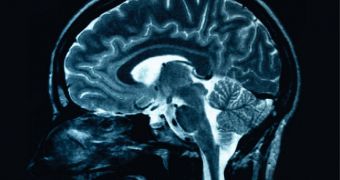A new study conducted by researchers at the University of Southern California (USC) provides additional evidence that pro-social behavior is in fact a part of human survival. The team found that moral behavior is promoted by high, complex emotions.
For centuries, religions have argued that it's only through spirituality that people become moral. However, since the advent of modern medical imaging technologies, experts have demonstrated that this is not true, and that morality is in fact coded by social interactions themselves.
In other words, compassion and admiration have the tendency to elicit morality and similar behaviors in people. The human brain may have evolved over millions of years in a direction that allows it to instinctively process high emotions towards triggering morality.
USC researcher Mary Helen Immordino-Yang, EdD, led an experiment in which test volunteers were told a number of stories that were composed in such a way so as to evoke compassion and admiration.
These feelings were directed towards the virtues that the researchers had just evidenced. Participants actually said that they felt a physical sensation in response to the stories they had listened. This type of response is not a sensation, since brain scans can easily evidence the associated neural activity.
Feeling or emotional reactions, Immordino-Yang explains, may in fact the causing an introspective reaction in individuals. It's this introspection that ultimately leads to realizing that moral choices and motivations are the best ones, PsychCentral reports.
“These emotions are foundational for morality and social learning. They have the power to change the course of your very life,” the team leader explains. She has been studying these psycho-physical “pangs” of emotion for a long time.
Details of the new research appear in the latest issue of the esteemed medical journal Emotion Review.
“We are an intensely social species. Our very biology is a social one. For centuries poets have described so-called gut feelings during social emotions. Now we are uncovering the biological evidence,” Immordino-Yang explains.
She adds that, during her research, she observed a number of cases and instances in which the mental-physical-moral became obvious. The expert and her team carried out 50+ of these qualitative analyses, both in Beijing, China and at the USC.

 14 DAY TRIAL //
14 DAY TRIAL //